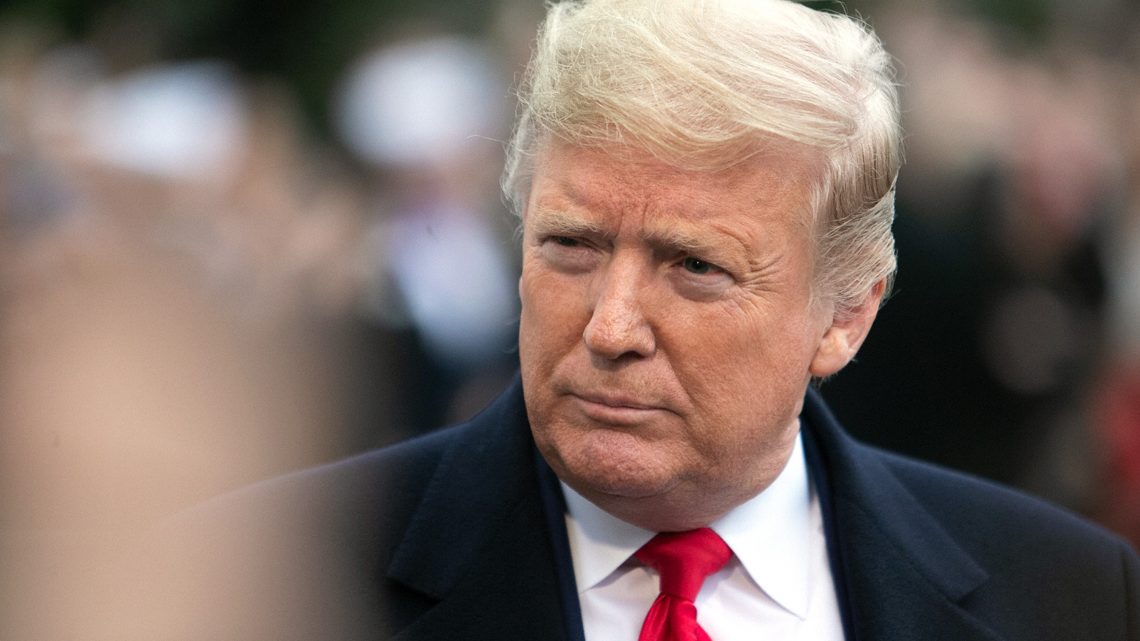
Trump Enters the Dumb Encryption Debate With a Dumb Tweet
January 15, 2020The last time we wrote about the encryption debate, a mere three months ago, our headline was “AHHHHHHHHHHHHHHHHHHHHHHHHHHHHHHHHHHHHHHHH.” The headline broke our website. That headline is now being used as an example of what not to do at VICE's new hire orientation. And yet, here we are again, writing about the encryption debate because the Trump administration has drawn up yet another cynical, misleading example to infuriate us and anyone who cares or knows anything about cybersecurity.
It is now President Trump’s turn to beat this dead horse, demanding on Twitter that Apple help the Justice Department unlock two phones used by a shooter at a naval base in Pensacola, Florida last month.
We have written dozens of articles on this topic over the course of the last decade, but nothing has changed in that time. If you are new to the debate, the iPhone’s storage is encrypted by default. There are lots of reasons Apple encrypts the iPhone: It prevents a thief from breaking into a stolen phone; it makes it harder for third parties to rummage through your phone. It generally makes the phone’s owner safer. But it also means that, without the passcode used to unlock the phone, cops can’t (according to the authorities) obtain the contents of a phone that they’ve seized.
Attorney General William Barr (and his predecessors) have repeatedly asked Apple (and Google, which also encrypts Android by default) to build backdoors into their devices and their software. These backdoors would defeat the purpose of the encryption in the first place, because it would inherently make the phones more easily probed not just by cops, but by authoritarian governments, hackers, etc. Device manufacturers like Apple and governments around the world have been at an impasse on this issue (in slightly different forms) for quite literally four decades. Technologists and civil rights defenders say that, though encryption is inconvenient for cops, having strong encryption on the whole makes us all safer.
We’re talking about this again because Barr and Trump say that the Justice Department can’t get into these iPhones used by a terrorist. It’s a convenient example for the government to use as a cudgel to attempt to force Apple to change its stance, except the idea that the Justice Department can’t access data on the terrorist’s iPhone is almost certainly not true.
Over the last several years, in the absence of an Apple-sanctioned backdoor, an entire industry of hackers has arisen and a gentle truce has more-or-less emerged. There are third-party companies that have found unintended vulnerabilities in the iPhone and have written software that exploits those vulnerabilities to break into locked phones. These companies sell these vulnerabilities (or bespoke hacking services, or hardware devices) to governments and cops all over the world, who then unlock the phones of suspected criminals (and sometimes those of activists and dissidents) in order to obtain the data that’s on them.
This technology has become so commonplace that Grayshift, a company that makes a tool called Graykey, sells its unlocking tool to state and local police all over the country. At this point, it is trivial and relatively inexpensive to break into iPhones, and it strains credulity that the Justice Department cannot simply hack the gunman’s iPhone 5 and iPhone 7 Plus (iPhones that are several years old, as these phones are, are generally easier to hack.) If, for some reason the Justice Department cannot hack these iPhones, it needs to explain exactly why it can't hack them. Are they damaged in some way that does not allow them to be unlocked? (Barr said the terrorist did shoot one of the phones and damaged the other). Did the shooter use an exceptionally long passcode? The Justice Department has lied about this topic so many times in the past that we cannot trust it on this issue without a truly exceptional and specific explanation.
I’d like to say that I cannot believe we are having this debate again, except I can believe it, because we’ve gone through this incredibly stupid and unproductive charade dozens of times before, and we will probably repeat it over and over until one day, mercifully, we will die.


